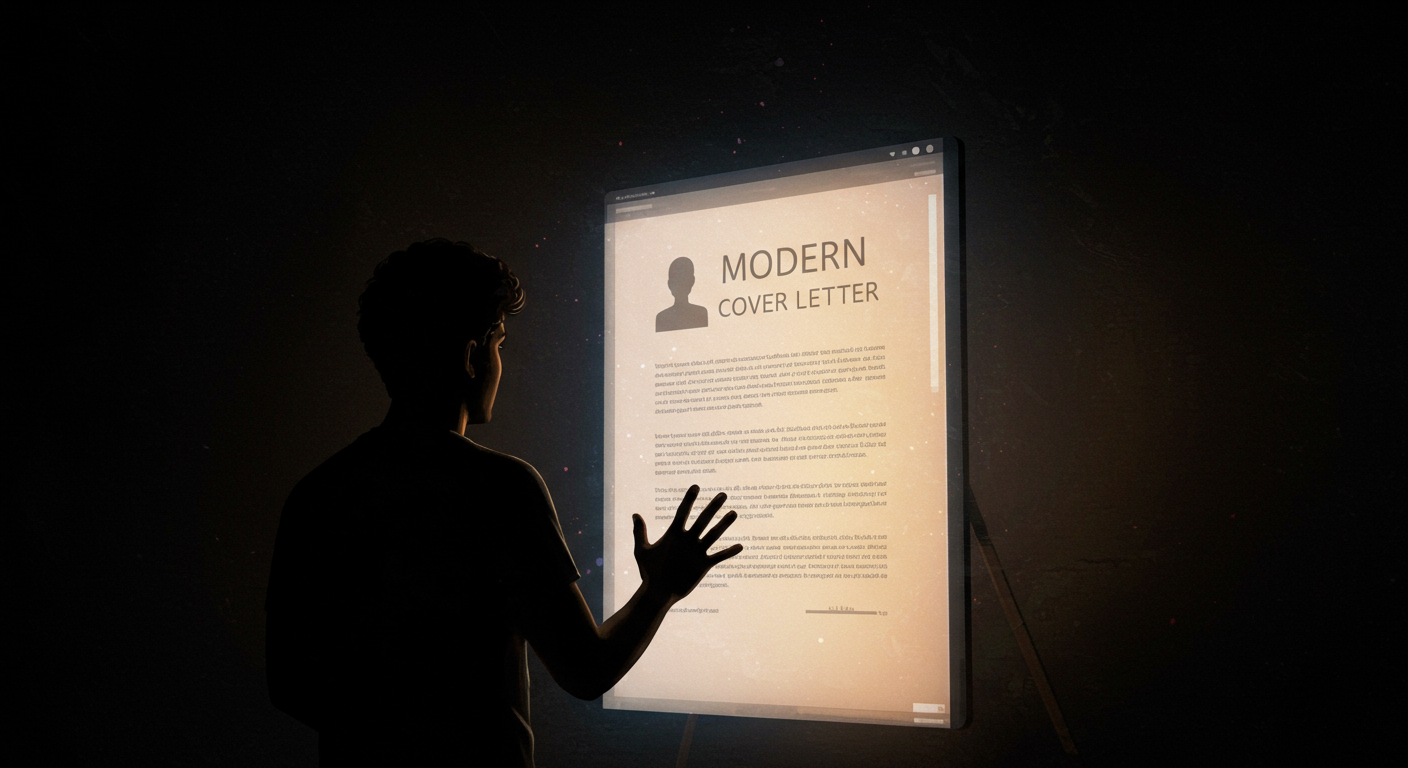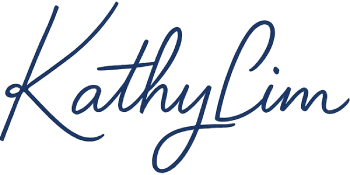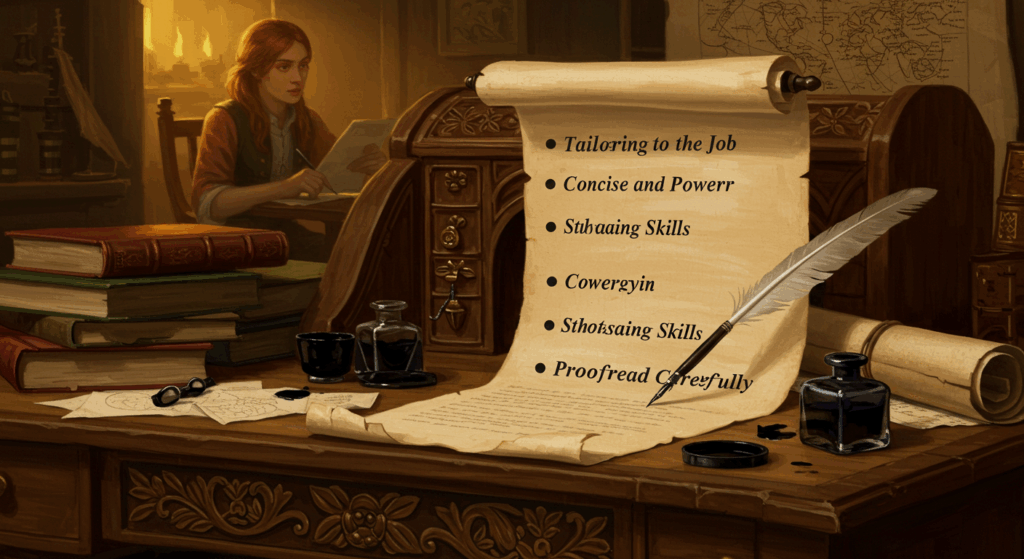Let’s be honest for a sec: writing a cover letter can feel like the spinach smoothie of job hunting. You know it’s probably good for you, but…ugh. Another document? Another round of “To whom it may concern”? Meanwhile your resume already looks like a Netflix “Continue Watching” row—lots of promising titles, not enough context on what any of it means. So, how important is a cover letter actually?
Short version: it’s more important than most people think—but not in the corny, outdated way you might assume. Think of it less like a ceremonial bow tie and more like AirPods for your resume: it makes your message clearer, more personal, and much easier to vibe with. Its significance comes from what it does that a resume can’t—signal your voice, show your thinking, and connect the dots in a way that makes a recruiter go, “Ohhh, I get this person now.”
Cool? Cool. Let’s get into it—casual, real talk, with practical advice and little moments of “wait, that’s actually doable.”
Why Cover Letters Still Matter: The Real-World Significance
A resume is a trailer; a cover letter is the director’s commentary
Your resume shows what you did. Your cover letter explains why it mattered and why you’re aiming here now. That meaning-making is the core significance. It helps hiring folks see the impact behind your bullet points and understand the story you’re building. Ngl, that story is often the difference between “meh” and “oh, let’s interview them.”
Human connection beats keyword bingo
ATS exists, yes. Robots scan resumes, yes. But people still make the call. When a human scans your application, your letter is where you get to sound like…a human. It’s your space to share motivation, clarity, and fit—especially useful if your background isn’t a perfect 1:1 with the job. The impact of a strong paragraph or two? It can flip a borderline application into a callback.
When context = confidence
Career change? Employment gap? Relocation? Nonlinear path? Your letter gives helpful context without oversharing. A clean, respectful explanation reduces guesswork and awkward assumptions. That alone can have outsized impact on how your application lands.
When the Cover Letter Is Extra Powerful (a.k.a. High-Impact Scenarios)
You’re switching lanes
Moving from customer support to product management? From hospitality to HR? Your letter is where you translate the examples from your past life into the new role’s language—showing transferable skills (stakeholder communication, process improvement, troubleshooting, data-savvy thinking) in a way bullets can’t.
You have a referral or warm intro
A quick, thoughtful letter that references your referrer and aligns your experience with the team’s goals can accelerate trust. This is quiet power—like getting the aux cord at the party and not blowing the speakers.
You’re applying to mission-driven orgs
Nonprofit, education, climate, public health—these teams often care a lot about motivation and values. The significance of a letter that articulates “why us” (with specifics) is huge. People want colleagues who choose them.
You’re targeting leadership or client-facing roles
If the job requires writing, persuasion, presentations, or relationship-building, your letter becomes living proof you can do the job. It’s like submitting a mini work sample without calling it that.
You’re early career with limited experience
Internships, projects, hackathons, campus roles, gig work—these may look light on a resume. Your letter can unpack the impact of your examples: what you changed, learned, built, or improved.
When You Might Skip It (and Why That’s Sometimes Fine)
- The application literally says “No cover letter.” Respect that.
- The portal has no upload field and no “additional notes” area. In this case, consider a very short “note to the recruiter” or tailor the first paragraph of your email/LinkedIn message as a mini-cover letter.
- You’re doing a high-volume batch for roles you’re only mildly interested in. If you have to choose between 30 rushed letters vs. 10 thoughtful ones, go quality. The impact of a tailored letter beats the quantity of generic ones, every time.
That said, if the role is a top choice or competitive, don’t skip. The sigmificance of being the candidate who did the letter—well, it’s not nothing.
The Anatomy of a Modern Cover Letter (Keep It Tight)
Think 250–450 words. Seriously. If your letter is longer than your average Instagram caption and reads like a Wikipedia page, you’re doing too much. Here’s a simple structure that respects everyone’s time:
1) Hook (1–2 sentences)
A clear line that connects you to them.
- “I’m a support specialist who turns messy bug reports into clean product insights—exactly why your CX-to-product feedback loop caught my eye.”
- “As a data analyst who loves narrative (and good dashboards, pls), I’m excited about your focus on analytics for social impact.”
2) The “Why Us” (2–4 sentences)
Show you’ve done your homework. Mention a product launch, strategy, or value that genuinely resonates. Keep it specific but not creepy.
- “Your shift from one-off campaigns to lifecycle marketing is smart. I did something similar at [last company], building a retention play that cut churn 7% in one quarter.”
3) The “Why Me” (3–6 sentences with examples)
Pick 2–3 relevant wins. Use quant-ish language if you can (even directional). Show your impact, not just tasks.
- “I rebuilt our onboarding sequence and shortened time-to-value from ‘uh, eventually’ to a consistent 48 hours. Ticket volume dropped 18% and NPS bumped up.”
- “I mapped repeat user journeys and convinced the team to test a streamlined flow; completion went from 62% to 81%.”
4) Close (1–2 sentences)
Confident, polite, and forward-looking.
- “I’d love to bring this kind of scrappy, systems-minded energy to your team. Thanks for reading—excited to chat.”
That’s it. Short. Focused. Human. No buzzword soup.
Style Notes That Secretly Matter (aka the Little Things With Big Impact)
- Subject line or first line if you’re emailing: “Application: Lifecycle Marketer — [Your Name]” is perfect.
- Tone: Conversational but professional. Think LinkedIn post you’d be proud for your manager to see.
- Format: Clean PDF or the body of the email. If uploading, PDF. If emailing, body text is fine.
- Name-dropping: Only if you have permission. “I’m applying per referral from Maya Patel (Ops Manager)” > “Maya said you’re desperate.”
- Avoid clichés: “I am writing to express…” is the mission statement of blandness. Delete.
- Personalization: Two specific references to the company > 12 vague ones.
- Length: If a recruiter has to open a new tab for “part 2,” it’s too long.
- Signoff: Keep it neat—“Best,” “Thanks,” “Cheers” are all fine. Use your actual name (wild, I know).
The Significance of Fit: How Your Letter Shows You “Get It”
You know how on dating apps everyone says they’re “down for adventures” and “loves dogs,” but you’re like okay but which adventures and what’s your dog’s name? Hiring managers feel similarly. Your cover letter is your chance to be specific about fit:
- Product-led growth shop? Speak to activation, retention, self-serve funnels, cohort analysis.
- Agency? Mention client communication, turnaround speed, creative briefs, stakeholder wrangling.
- B2B SaaS? Talk ICP clarity, sales enablement, pipeline influence, churn levers.
- Nonprofit/public sector? Center impact, community, and responsible metrics—no vanity KPIs.
Specificity screams “I understand your world.” That’s high-impact energy.
Realistic Examples (You Can Borrow the Shape)
Example 1 — Entry-Level Marketer, No Big-Name Internships
Hook: “I’m a self-taught lifecycle nerd who loves building experiments that make users stick.”
Why Us: “Your switch to PLG and community-led is my happy place.”
Why Me: “At my campus org, I rebuilt the onboarding emails, invreasing event attendance 42%. I also ran TikTok tests that doubled weekly signups.”
Close: “Would love to bring that scrappy testing mindset to your team.”
Why it works: Specific, gives examples with impact, and shows awareness of the company’s direction.
Example 2 — Career Switch: Customer Support → Product
Hook: “I’ve spent three years translating user pain into clean tickets; now I want to own the problem.”
Why Us: “Your roadmap calls out reducing setup friction—something I’ve wrestled with daily.”
Why Me: “I analyzed 600+ tickets to cluster root causes, then worked with design to prototype a simplified flow; onboarding questions dropped 18% in a month.”
Close: “I’m ready to turn this kind of insight into product changes full-time.”
Why it works: It reframes frontline experience as product fuel. Clear impact. Relevant examples.
Example 3 — Nonprofit Operations
Hook: “My superpower is building calm systems behind big missions.”
Why Us: “Your focus on student support and donor trust resonates.”
Why Me: “I standardized intake across 4 sites and decreased response time from five days to 24 hours while maintaining quality checks.”
Close: “I’d love to help scale your impact responsibly.”
Why it works: Values + operations + measurable impact = chef’s kiss.
“But Do People Actually Read Them?” (The Part Everyone Asks)
Sometimes a recruiter scans the first paragraph. Sometimes the hiring manager reads closely. Also, sometimes it’s skimmed after your resume impresses. The point is: you won’t always know which person reads what. A strong, skimmable letter increases your odds across scenarios. Not to get all math-class, but it’s an expected-value play: small investment, meaningful potential upside. The significance isn’t just in guaranteed attention; it’s in the optionality it creates.
Common Mistakes That Weaken Impact (No Shame, We’ve All Done These)
- Writing your autobiography. If you’re scrolling your own letter, it’s too long.
- Talking only about yourself. Mirror the job’s needs. “You need X; I offer Y; here’s proof.”
- Generic praise (“industry-leading,” “innovative”). Cool, but how? Name a feature, initiative, or customer segment.
- Overexplaining gaps. Keep it simple and forward-looking: “Took six months for caregiving; now fully available and energized.”
- Big claims, no proof. “I’m a strategic leader” means nothing. A 2–3 line example means everything.
- Typos and formatting chaos. We’re all human, but run spellcheck and keep the layout tidy.
Advanced Moves If You Want To Stand Out (Without Being Weird)
- Borrow the company’s voice. If their site is punchy, match it (lightly). If it’s formal, dial it up.
- Attach a tiny “proof” artifact. A one-page portfolio snapshot, a link to your GitHub, a short case study PDF. Not mandatory—just high-impact if appropriate.
- Reference a recent announcement or product update. Two sentences max. Shows you’re paying attention.
- Offer a starter idea. “If helpful, I’d begin by mapping onboarding dropoff and testing a 2-step checklist.” Don’t pitch a full strategy; just show your brain.
FAQ (Because Your Brain Has Follow-Ups)
Do I need a cover letter for every application?
No. But for roles you truly want—or where your background needs context—the significance is real. Prioritize those.
Can I reuse the same letter?
Make a strong base and customize the hook + “why us” + 1–2 examples.
Email body or attachment?
If there’s an upload field, do a clean PDF. If you’re emailing directly, put it in the body and attach your resume.
How do I find the hiring manager’s name?
Try LinkedIn (team page), job post clues, or company site. If you can’t find it, “Hi [Team/Function] Hiring Team” is fine.
What if I’m bad at writing?
Shorter is better. Focus on 2–3 real examples with impact. Read it out loud. If it sounds like a robot manifesto, edit.
A Simple Template You Can Steal (and Tweak)
Hi [Name or Team],
I’m a [your role] who loves [relevant skill focus], and I’m excited about [company or team] because [specific reason—product, mission, strategy]. Your shift toward [relevant direction or idea] especially resonates.
In my last role at [Company], I [key action with impact]. I also [second example], which led to [result]. These are the kinds of problems I like—messy systems, human-centered improvements, and shipping changes that actually move metrics.
I’d be excited to bring this to [Company/Team], starting with [lightweight starter idea tied to the role]. Thanks for reading—I’d love to chat.
Best,
[Your Name]
[LinkedIn or portfolio link]
Short. Clear. Human. High-impact.
The Bigger Picture: The Significance of Effort Signals
Let’s talk vibes. Hiring is risky. People are trying to bet on whether you’ll deliver. Your cover letter is a signal—that you care enough to tailor your approach, that you can communicate, that you get their world. Even if it’s skimmed, the presence of a good letter subtly boosts your credibility. It’s like showing up to a date on time and having a plan. No one says, “Wow, punctuality!” But it changes the whole mood.
Cover Letter Examples of Openers (Pick One and Adapt)
- “I turn ambiguous customer feedback into clear product changes—your new onboarding goals are my jam.”
- “As a marketer who measures feelings and funnels, I’m excited by your community-first strategy.”
- “I build calm, scalable processes. Your ops challenges sound familiar—in a good way.”
- “I help designers and engineers speak sales. Your cross-functional culture stood out.”
- “I’m a data person who really, really likes people. That’s why your CX role clicked.”
How to Measure Impact (Even If You Don’t Have Perfect Numbers)
Don’t have exact stats? Use directional or qualitative impact:
- “Shortened response times from days to under 24 hours.”
- “Reduced onboarding questions noticeably (tracked weekly).”
- “Increased demo requests after revising the landing page (based on CRM notes).”
- “Improved adoption by simplifying the setup steps.”
These are still valid examples of impact. Be honest; approximations are fine if they’re grounded.
The Reality Check: It’s Not Magic, But It Moves the Needle
A cover letter won’t rescue a wildly off-target application. And yes, some hiring flows are chaotic—your letter might not get the love it deserves. But across many organizations, the significance of a clean, focused cover letter is real. It helps borderline resumes rise, it clarifies career pivots, and it shows the exact kind of initiative that teams quietly love.
Also, worst case? You become better at telling your story. That skill compounds across interviews, networking messages, and even performance reviews. The impact of that clarity goes beyond one application.
Quick Checklist Before You Hit Send
- One-paragraph hook that ties you → them
- Two specific “why us” points (product/mission/strategy)
- Two to three examples of impact (wins, improvements, outcomes)
- Forward-looking close with a tiny starter idea
- 250–450 words, tidy formatting, clear file name
- No jargon salad, no novel-length origin story
If you tick all those, your letter is already better than most. Promise.
Final Take: So…How Important Is a Cover Letter?
Important enough that it can set you apart, especially in competitive roles or non-linear career paths. Important enough that the significance of 20 extra minutes customizing it can deliver outsized impact on your chances. Not so important that you should burn out trying to write a Shakespearean monologue for every single application. Pick your battles, but when you choose to write one—do it well, keep it human, and show your thinking.
You’ve got this. Really. Write the short, punchy letter, press submit, and go treat yourself to a snack (yes, even if it’s 11pm and your Spotify “focus” playlist is looping the same three beats). Small steps, steady progress.
Now go open that job posting you actually want and draft a 300-word note. Hit send today—future you will thank you.









